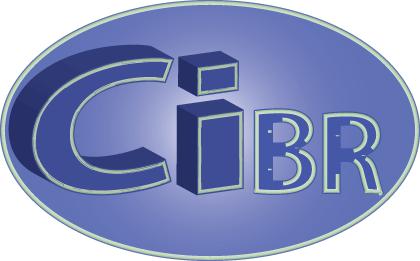The Key to Finding Top Talent: Mastering Recruitment in Romania

This article aims to provide valuable insights and best practices for successful recruitment in Romania. The country's recruitment landscape is influenced by its diverse linguistic environment, with Romanian being the official language spoken by 85% of the population. However, many Romanians are also proficient in other languages such as Hungarian, Romani, Ukrainian, Russian, and Bulgarian. Moreover, there is a growing trend among the younger generation to learn English, French, or German, which adds to the complexity of the recruitment process. This highlights the importance of having a comprehensive understanding of the local talent to effectively navigate the Romanian job market. A tailored approach is necessary for mastering recruitment in Romania, considering the multifaceted language skills and educational background of the workforce. As the demand for skilled professionals continues to rise, recruiters must adapt by utilizing innovative strategies and having a good understanding of the legal framework governing employment.
Romania's job market
One key aspect to consider in Romania's job market is the booming IT industry, which has a high demand for tech professionals. This has resulted in intense competition among companies to attract and retain top talent, making the IT sector a crucial area for recruitment. The success of this industry can be attributed to Romania's strong education system, particularly in mathematics and computer science, which produces a skilled pool of IT professionals. These employees earn the highest salaries, with an average monthly pay of 6,500 lei (approximately 1,306 euros) in 2023. Additionally, job postings on eJobs Romania that included salary information received 40% more applications, highlighting the importance of transparency in salary information.
Another significant aspect of the Romanian job market is the focus on entry-level positions, which make up a significant portion of job postings (39.6%). This indicates a strong emphasis on nurturing new talent within the workforce. Apart from the IT sector, there is a wide range of in-demand jobs in other industries, such as Driver, Medical Assistant, and Engineer, showcasing the diverse employment opportunities in Romania. The combination of a strong education system, competitive salaries, and a focus on entry-level positions highlights the uniqueness of the Romanian job market.
Recruiting in Romania
Recruiting in Romania poses various challenges for companies looking to remain competitive in the country's ever-changing job market, particularly in the rapidly growing IT industry. To overcome these challenges, businesses must implement a proactive recruitment approach. This involves continuously sourcing potential employees and building a pool of skilled individuals to meet the demand. Additionally, it is beneficial to utilize reputable recruitment agencies, as they provide valuable services to both small startups and large corporations, dispelling the misconception that all local agencies are expensive and provide subpar services.
Effective Strategies for Successful Recruitment
To successfully navigate the recruitment landscape in Romania, companies can employ a diverse strategy that focuses on improving skills, embracing diversity, and utilizing technology. By implementing these strategies effectively, companies can address challenges and capitalize on opportunities in the Romanian job market.
1. Prioritize Education and Training: Investing in the upskilling of current employees can help mitigate talent shortages and foster a culture of continuous learning and adaptation to technological advancements.
2. Embrace Flexible Work Options: Offering flexible work arrangements, such as remote work, job sharing, and part-time work, caters to the changing expectations of the workforce and expands the talent pool by removing geographical barriers.
3. Promote Diversity and Inclusion: Implementing values of diversity, equality, and inclusivity not only improves company culture but also attracts a wider range of candidates, enriching the talent pool with diverse perspectives and experiences.
Additionally, companies should streamline their hiring process, from recruitment to onboarding, to ensure efficiency and engagement. This includes investing in an engaging onboarding process and addressing common questions about remote onboarding to make new hires feel welcomed and valued from the beginning.
By employing these strategies, companies can overcome recruitment challenges in Romania, attract top talent, and foster a positive and inclusive workplace culture.
Romania's employment legal framework
Understanding Romania's employment legal framework is crucial for successful recruitment and adherence to regulations. Key aspects to consider include:
- Employment Contracts and Probation Periods:
- Standard positions typically have a probationary period of 90 days, while management positions may have a longer period of 120 days.
- Notice periods are established at 20 days for standard roles and 45 days for management positions, providing sufficient time for both parties to make necessary adjustments.
- Working Hours, Overtime, and Leave:
- A standard workweek consists of 8 hours per day, totaling 40 hours, and any overtime is compensated at a minimum premium of 75%.
- Employees are entitled to a minimum of 20 working days of vacation per year, in addition to special provisions for sick leave, maternity leave, and paternity leave, promoting work-life balance.
- Employer Contributions and Employee Benefits:
- Employers are required to contribute 20.8% of monthly salaries to social security, with additional allocations for unemployment, medical leave, and public health insurance.
- Non-discrimination, pre-employment medical exams, and adherence to GDPR for employee data protection are also mandated by the legal framework. This structure ensures a fair, transparent, and compliant employment process that benefits both employers and employees in Romania.
Effective Onboarding Strategies
Implementing Effective Onboarding Strategies It is vital to have effective onboarding practices in place to successfully integrate new employees into the company culture and ensure they are prepared and valued for their roles. Here are some recommended tactics:
1. Preparation and Greetings:
- Make sure the new employee's workspace is ready and all necessary equipment and access to required accounts or software are arranged prior to their arrival.
- Stay in frequent communication with new hires to make them feel welcomed and informed about their upcoming role.
2.Comprehensive Onboarding Plan:
- Develop an onboarding program that includes a clear outline for the new employee's first week, covering job basics, tools, and resources needed for success.
- Assign an onboarding mentor or buddy to support them during their first few weeks, promoting a comfortable environment for asking questions and providing feedback.
3. Engagement and Evaluation:
- Organize team-building activities, lunches, or coffee breaks to facilitate team integration.
- Acknowledge and celebrate milestones to motivate new hires and clearly define role expectations and performance standards.
- Request feedback after the initial onboarding process to continuously enhance the onboarding experience.
Conclusion
In conclusion, successfully navigating the job market in Romania requires a thorough understanding of its diverse language landscape, education system, and growing industries, particularly in the field of IT. This article has delved into the various challenges and opportunities that characterize recruitment in Romania, highlighting the importance of a tailored approach that considers local linguistic diversity and educational backgrounds, as well as the use of innovative strategies to meet the changing demands of a competitive job market. By implementing best practices in recruitment, onboarding, and compliance with local employment laws, companies can significantly improve their recruitment outcomes, attracting top talent and fostering an inclusive workplace culture. The insights and strategies discussed demonstrate the potential for businesses to effectively navigate the complexities of recruiting in Romania, emphasizing the value of continuous learning, diversity, and technological adaptation. By investing in employee development, embracing remote work options, and promoting diversity and inclusion, companies can successfully overcome the challenges of talent shortages and rapid technological advancements. Furthermore, adherence to Romania's employment laws ensures a fair and compliant recruitment process, laying a strong foundation for long-term success and growth in the ever-changing job market of Romania.
Call me if you want to recruit people in Romania +32 478 331 799 or mail me frjacobs@telenet.be We have more then 20 years recruting experience In Romania.
Read more
Procedure to create a company in Romania
What is the procedure for opening a company in Romania?
